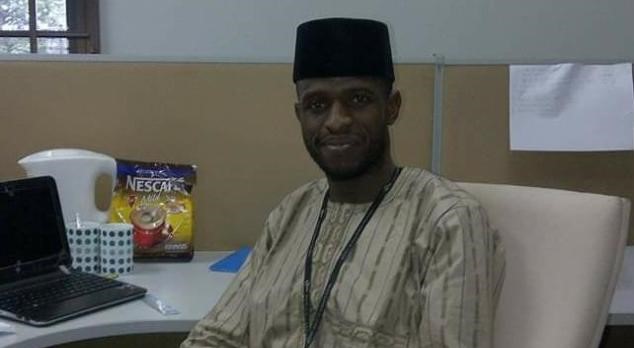Some state governments in the North-East zone in Nigeria have intensified effort at ensuring clean environment, creation of job opportunities and revenue generation, through effective waste management practices.

A survey conducted in Bauchi, Borno, Gombe, Adamawa and Yobe states indicates that some of them have even established waste management plants for commercialisation of disposed waste materials.
One of such states, Bauchi, has moved a step further to sign Memorandum of Understanding with a UK-based company, “Power Dot UK”, to generate 10 megawatts of electricity yearly, from waste materials.
Dr Ibrahim Kabir, the Director General of the Bauchi State Environmental Protection Agency, said in Bauchi, the state capital, that the electricity would be generated from the abundant waste material in the area.
Kabir said the 10 megawatts energy incineration plant would process about 64,700 metric tonnes of waste annually to generate power, as well as provide jobs for 200 people.
He explained that the power plant would use plastic waste as raw materials and supply electricity to all existing industries and factories in the state.
Kabir said the company would commence work on the plant by March, to be completed and inaugurated within 12 months.
The Director-General said the state government would, among other things, provide the needed waste and also ensure monopoly of the dump sites.
With respect to refuse disposal, Kabir said the agency had established three refuse collection centres within Bauchi metropolis.
He said the agency had also mobilised trade associations and traditional institutions, especially ward heads, to conduct monthly environmental clean-up to complement its efforts.
“The agency currently has 10 vehicles, out of which nine are functional, and will be used to evacuate refuse dumps scattered all over the metropolis.
“We are also working out a system whereby residents will be enlightened on when and where to dump such refuse for easy evacuation,” Kabir said.
The state government had in 2013 established a N244 million waste recycling plant to recycle waste materials.
The plant, apart from ensuring the collection of polythene debris and composite of plastic materials, engaged over 5,000 youth.
On its part, Gombe State Government said it was working to revive a waste recycling plant to turn its generated waste into useful materials.
Dr. Hussaina Goje, state Commissioner for Environment and Forest Resources, said government was committed to ensuring a “cleaner” and “fresher” environment.
Goje said talks were already going on with the Federal Ministry of Environment for the revival of the plant to enable the recycling of refuse generated in the state.
“A lot of waste is being generated in the state and currently, over 100,000 tonnes of solid waste monthly are generated from the state as indicated by statistics obtained last year,” she said.
According to Goje, the generated waste was properly disposed at regulated dump sites to ensure that they did not find their way back to unwanted locations.
She stated that the state government had established two dump sites, while making efforts towards creating more collection centres.
Goje decried the poor attitude of some residents with regards to compliance with rules on proper disposal of waste.
In Adamawa, inadequacy of waste disposal centres is a major challenge, according to Mr. Kwaya Danfulani, Director, Environment and Sanitation, at the Ministry of Environment.
“The available sites provided by government for waste disposal have been sold off and structures built on them.
“Government has a policy on proper waste disposal and management, but we do not have any approved site for waste disposal in the state,” Danfulani said.
He said there were about 15 private waste disposal companies that registered with the ministry, and government was making efforts to regulate their activities.
Danfulani said government had purchased heavy duty trucks for collection of refuse within Yola, the state capital.
On his part, Mr. Abubakar Hamid, Adamawa Coordinator, National Environmental Standards and Regulations Enforcement Agency (NESREA), said the manner private collectors dumped waste outside communities in the open was worrisome.
Hamid said that the agency had advised the state government to establish structures for recycling of generated wastes.
Mr Augustus Nyelema, operator of a private waste disposal company in Yola, said that lack of proper coordination was affecting the business.
Nyelema also said lack of designated waste disposal sites in the state was one of their major challenges.
Meanwhile, Borno State Environmental Protection Agency said it employed about 1,750 Environmental Vanguards to ensure clean and safe environment.
Coordinator of the Agency, Alhaji Nasiru Surundi, disclosed that the vanguards were deployed in the state capital and its environs.
Surundi explained that, considering the importance of a healthy environment, government had purchased 40 refuse compactor trucks, 1,000 refuse receptacles and 3,000 garbage bins for collection and disposal of waste materials in Maiduguri, the state capital.
On recycling, he explained that the state government had begun recycling polythene waste into varieties of plastics at the Borno Plastic Industries Limited.
Surundi said government had also adopted some pragmatic measures to curb indiscriminate dumping of refuse and other unwholesome habits that could ignite outbreak of diseases.
“Currently, the state Ministry of Justice and the State Assembly are working towards reviewing the environmental laws because the old ones have outlived their usefulness.
“In the past, you pay N300 for abusing the environment, an amount that is grossly meagre now,” he noted.
By Razak Owolabi
